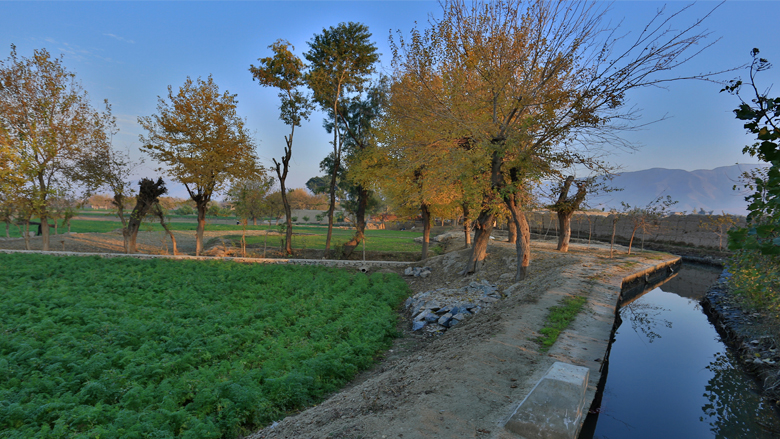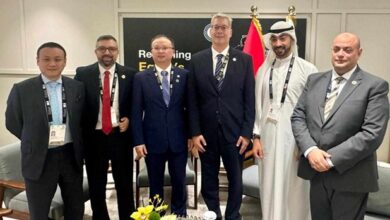
Minister of Water Resources and Irrigation Hani Sweilem said that Egypt faces challenges in providing the water resources necessary for drinking, agriculture and industry due to the nation’s rising population.
In his speech during the opening of the first phase of the harvest season of the “Egypt’s Future” project for sustainable development – held in the presence of President Abdel Fattah al-Sisi – Sweilem gave a presentation on the prospects of reusing water, explaining that the size of Egypt’s water needs is estimated at 114 billion cubic meters per year.
The minister indicated that Egypt must import food crops of wheat, corn and sugar because if grown inside the country up to 33.5 billion cubic meters of water would be required.
This therefore reduces the size of water needs inside Egypt to 88.5 billion cubic meters – divided into agriculture, drinking water and industry.
He added that the total water resources within Egypt from the share of Nile water, water desalination, rainwater, and non-renewable deep groundwater amount to 60 billion cubic meters, while current needs require 80.5 billion cubic meters.
Sweilem pointed to a deficit of more than 20 billion cubic meters of water, and that this deficit is covered by reusing approximately 21 billion cubic meters of agricultural and sewage drainage water.
According to the minister, all of Egypt’s necessary needs per capita during the sixties were estimated at about 2,000 cubic meters per year.
By the nineties, Egypt faced a major challenge in water resources as it fell below the water poverty line due to population increases that have now made the water share per capita only 500 cubic meters per year.
The minister assured that Egypt has many solutions to confront these water problems.
These include importing more foodstuffs to cover this deficit, which has risen over time due to population increase or finding solutions within Egypt’s soil, which Sweilem said is the ideal path to cover the water deficit and avoid facing high import bills in dollars – which increase every year – by working on huge national projects to reuse agricultural wastewater.




